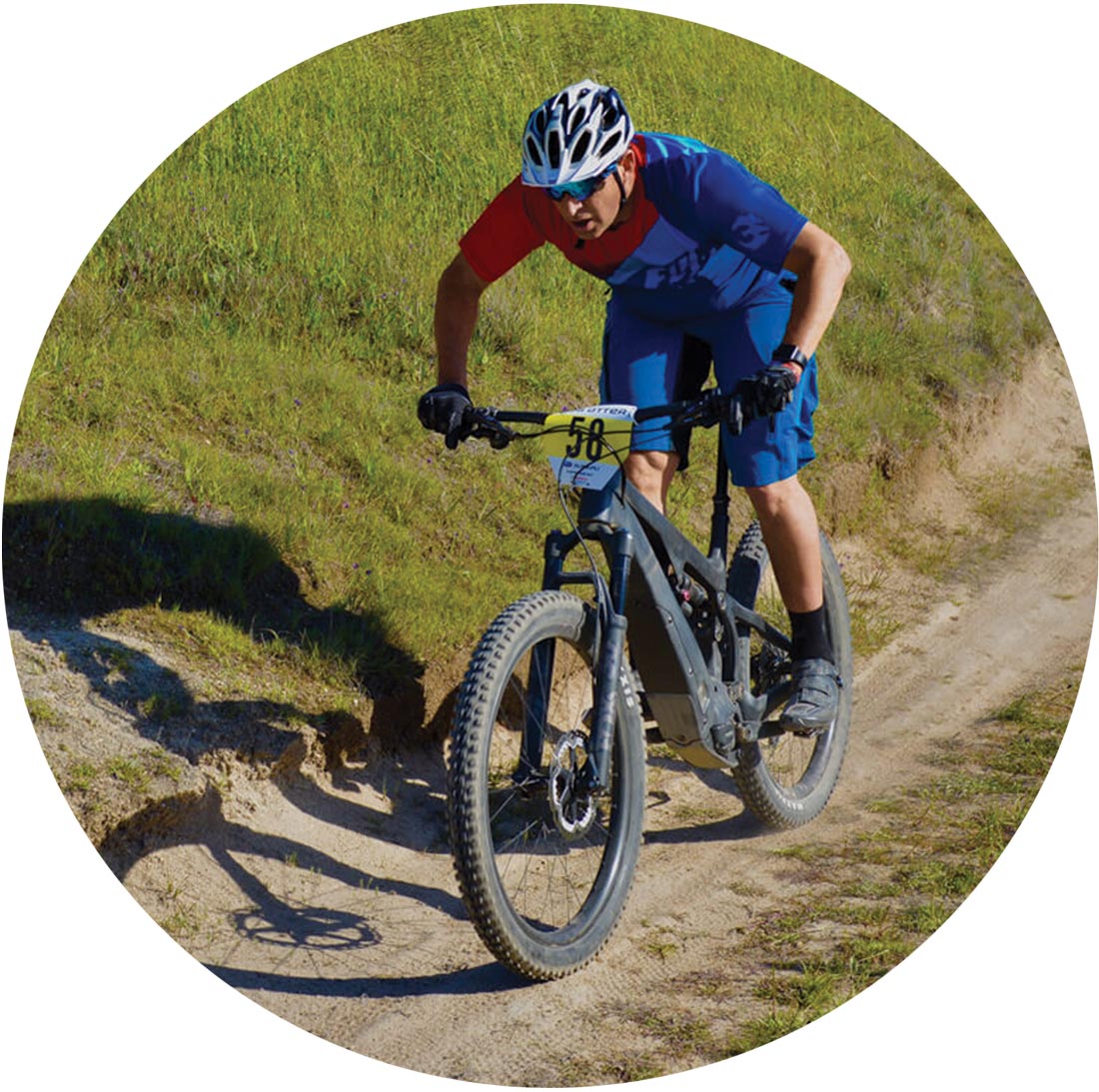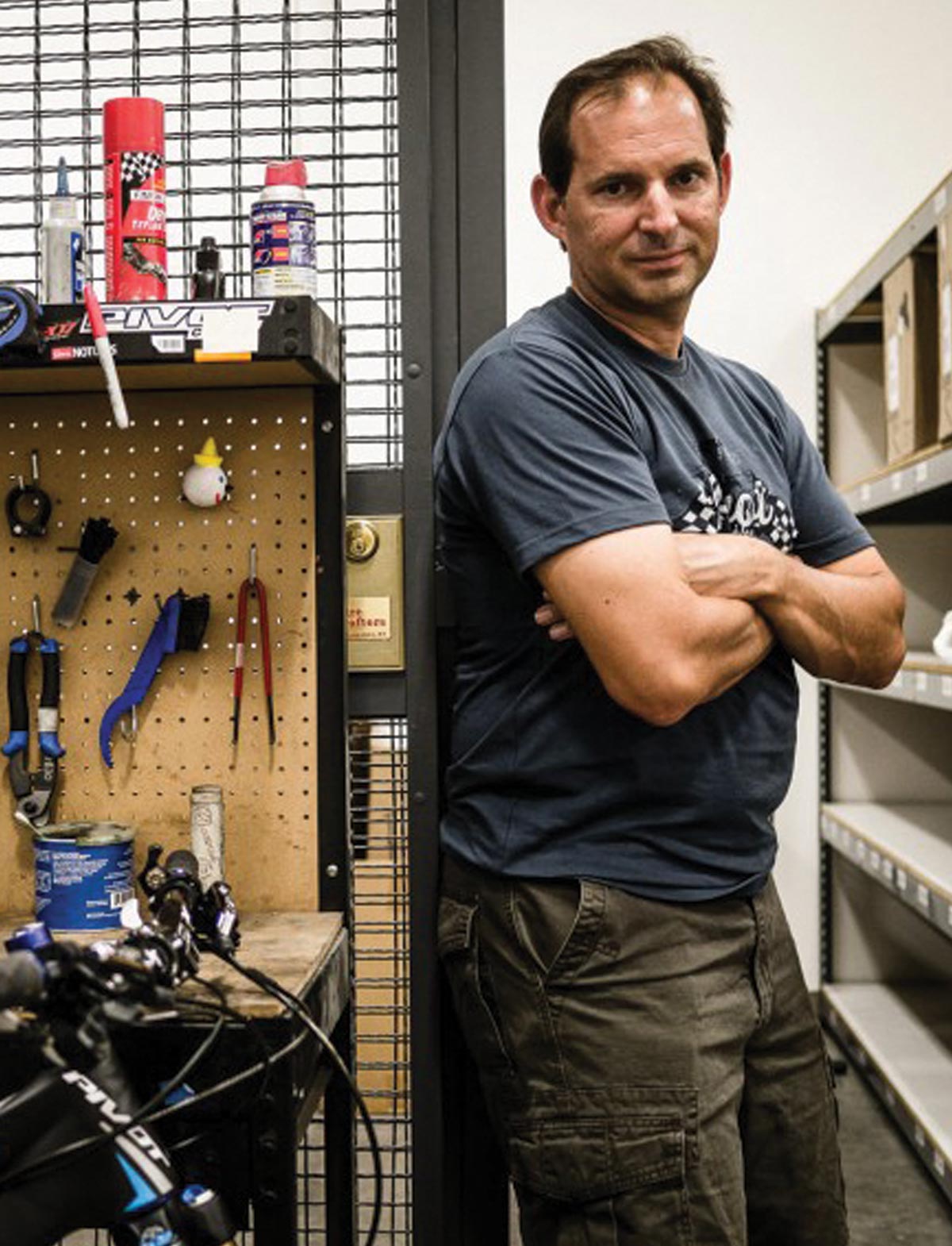Chris Cocalis
(BS Accountancy ’92)
lthough its supply chain was disrupted during the beginning of the pandemic, Pivot Cycles and its president, Chris Cocalis (BS Accountancy ’92), kept business balanced when it began to boom.
Founded by Cocalis in 2007, the company designs and builds high-end performance bicycles, particularly in specialty categories like mountain, downhill, and full suspension. Pivot Cycles has headquarters in Tempe, Arizona, and assembly facilities in Germany and Taiwan.
2020 curbs cycle supply chain
April 2020 proved to be the most difficult month for Pivot Cycles. “We had to look at our sales every day, and run projections of how many days we could keep a full staff on board,” Cocalis says.
One month later, however, it was as if a light switch had been flipped on. With the world stuck at home, people began rediscovering their love for the outdoors. “We had more orders that month than the rest of 2020 so far,” Cocalis says. Thanks to what the media had been referring to as a “bike boom,” it suddenly seemed like Pivot Cycles would be OK.
lthough its supply chain was disrupted during the beginning of the pandemic, Pivot Cycles and its president, Chris Cocalis (BS Accountancy ’92), kept business balanced when it began to boom.
Founded by Cocalis in 2007, the company designs and builds high-end performance bicycles, particularly in specialty categories like mountain, downhill, and full suspension. Pivot Cycles has headquarters in Tempe, Arizona, and assembly facilities in Germany and Taiwan.
2020 curbs cycle supply chain
April 2020 proved to be the most difficult month for Pivot Cycles. “We had to look at our sales every day, and run projections of how many days we could keep a full staff on board,” Cocalis says.
One month later, however, it was as if a light switch had been flipped on. With the world stuck at home, people began rediscovering their love for the outdoors. “We had more orders that month than the rest of 2020 so far,” Cocalis says. Thanks to what the media had been referring to as a “bike boom,” it suddenly seemed like Pivot Cycles would be OK.

(BS Accountancy ’92)
“We’ve observed companies dealing with lead times of 200 to 900 days,” Cocalis explains. “Fortunately, we have flexibility and a wide product line that allows us to move things around, and hedge our bets.”

Cocalis and his team haven’t been able to travel internationally since COVID-19 hit. “We work with over 400 retailers within the United States and 50 international distributors in connection to 20 different bike models, each with numerous different parts. It’s been more complicated without the usual hands-on approach,” he says.
Pivot Cycles uses several vendors for each part, with the understanding that some will come through and some won’t. “An ocean container of parts that used to take 3½ weeks to ship now takes 2½ months.”
Pivot Cycles has brought on additional employees at its Tempe headquarters, even expanding its purchasing team from three to seven. “Everything has taken more analysis and communication,” Cocalis says. “The ability to manage product development has changed. We assemble everything in-house.”
Inventory has been a crucial aspect to focus on, he says. “We now expect creativity and adaptability as normal parts of our operation. Especially within this industry, we have to be aware of product life cycles and pay attention to inventory on the individual part level.”
The team stays involved within the community and is always looking for fresh talent. “Over the years, our company has hired W. P. Carey and ASU alumni,” Cocalis says. “We interact a lot with the marketing department and Clinical Assistant Professor Nancy Gray, participating in case studies for varying courses.”
Pivot Cycles has used 2020 as a critical lesson. “We’ve realized we have the infrastructure in place to achieve success amid COVID-19 and all its challenges,” he says. “I’m proud of how our team has shown flexibility and the ability to pivot.”